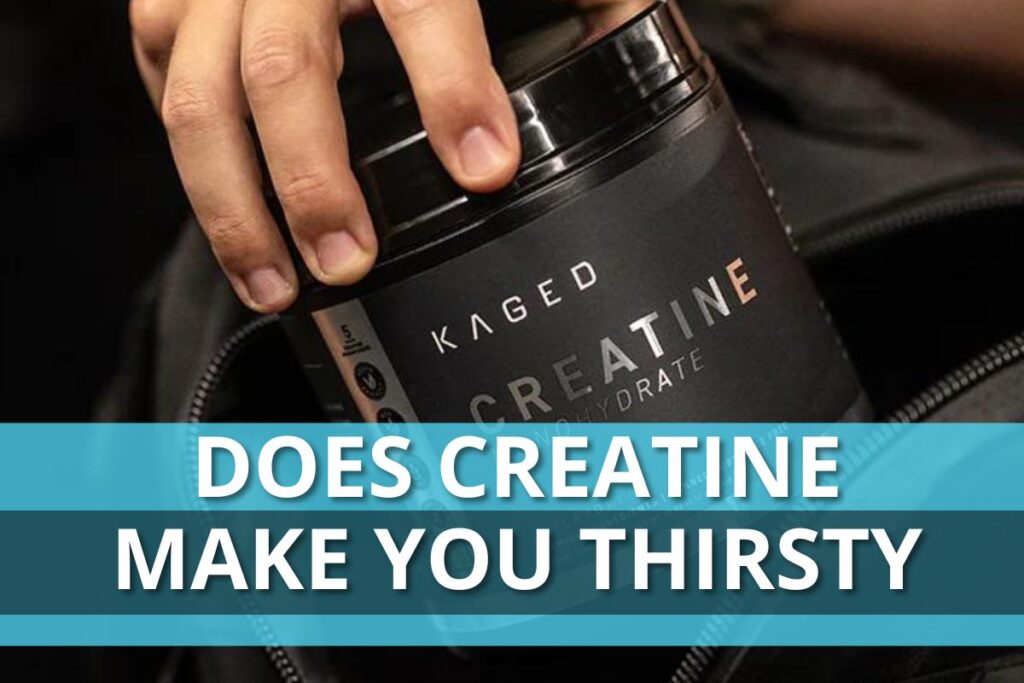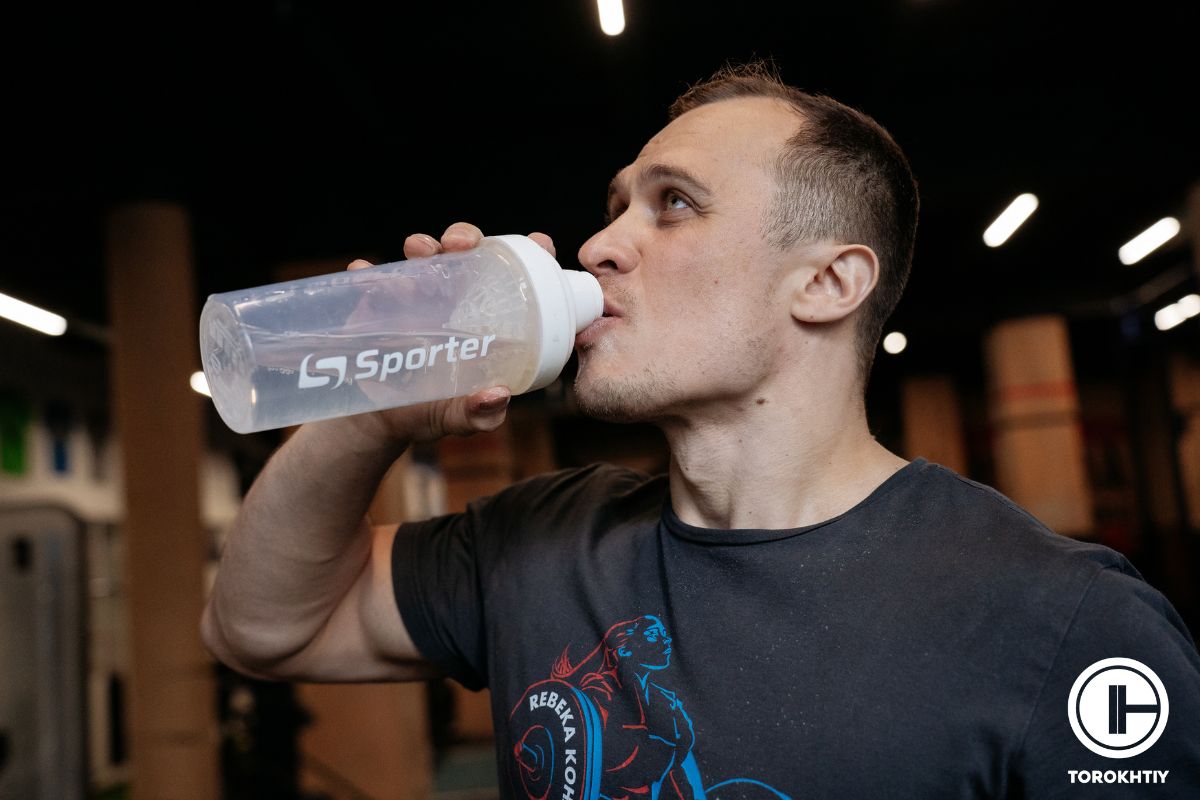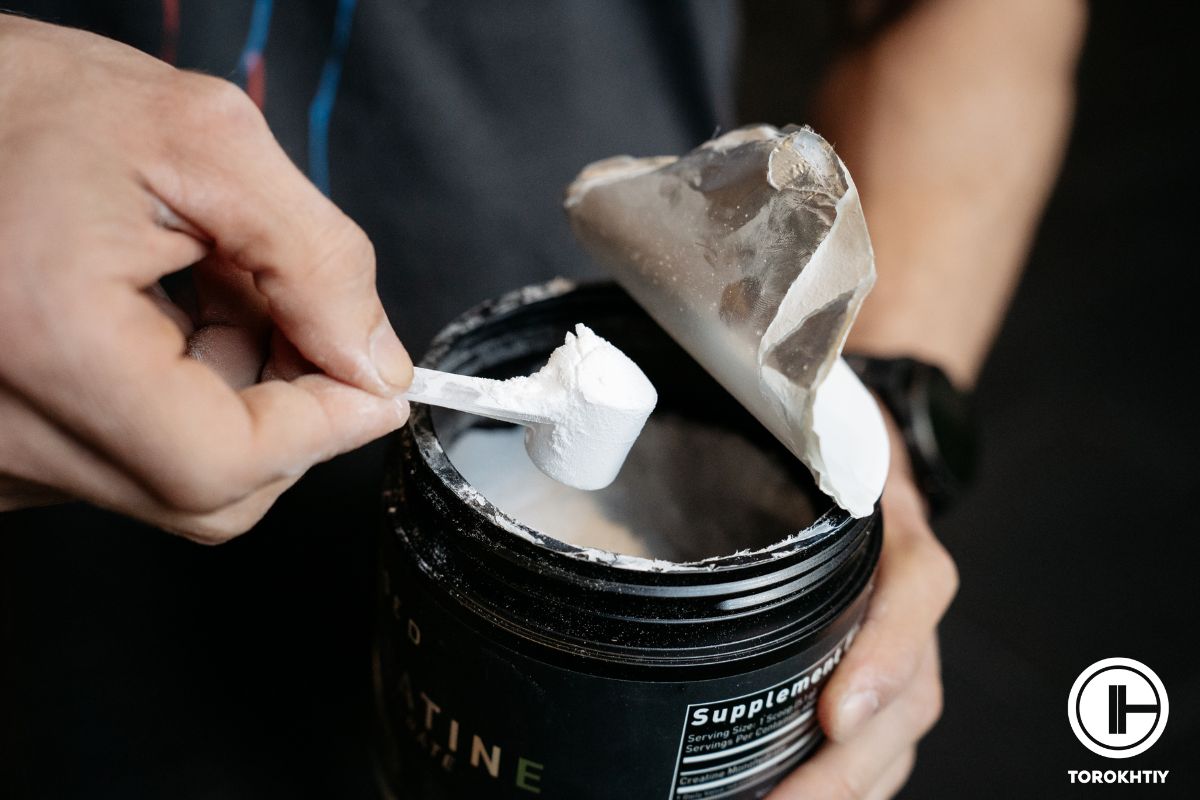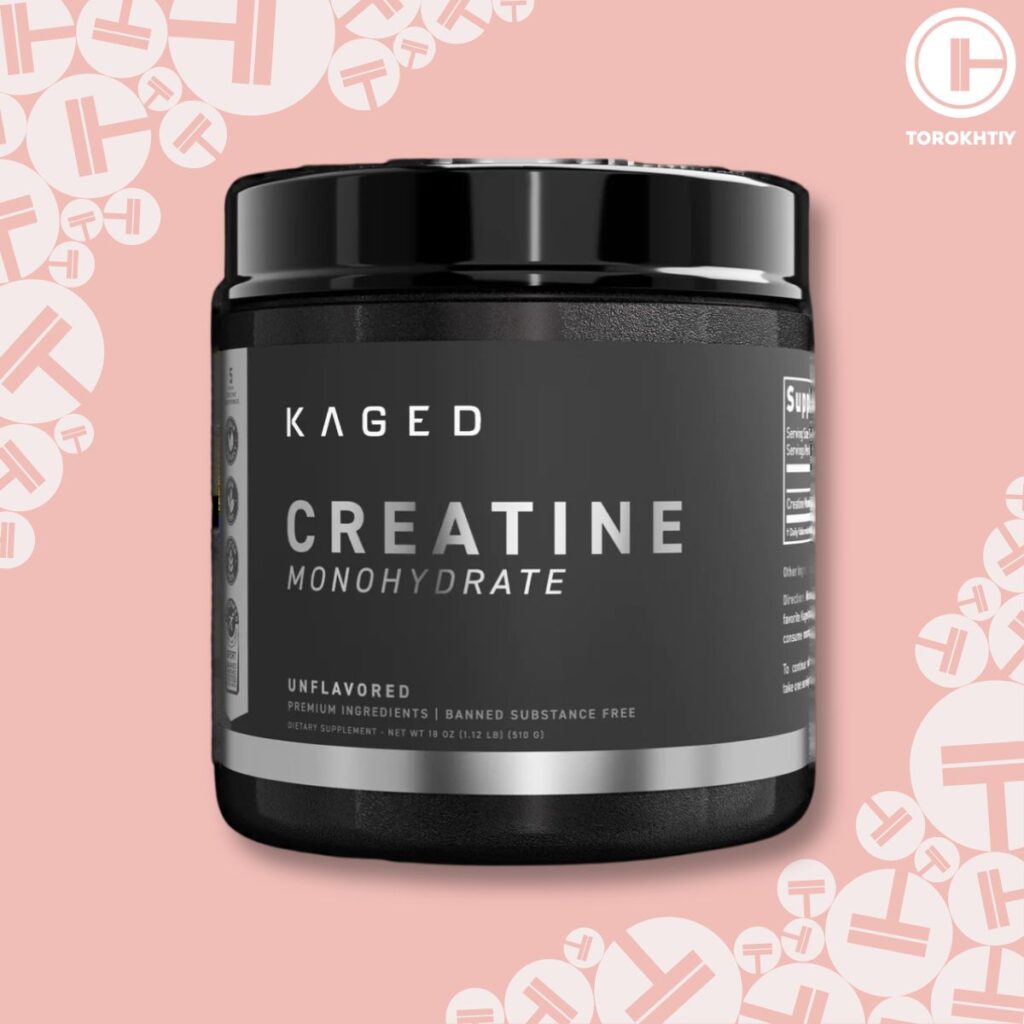Does Creatine Make You Thirsty? Creatine and Water Intake
Author:
Unlock your full potential by engaging with our experts and community! Have questions about your fitness journey or looking for expert advice on weightlifting techniques? Don’t hesitate — leave a comment below and Camila Parente Santos will provide a personalized answer and insights to help you reach your goals.
Torokhtiy is reader-supported. Some links are affiliate links, and we may earn a commission at no extra cost to you. See our disclosure page for details.
While creatine won’t necessarily make you thirsty, it is important to drink enough water when using this supplement. This is mainly because creatine leads to your body holding slightly more water.
Does Creatine Make You Thirsty?
Does creatine make you thirsty? Because this supplement causes you to hold slightly more water, it may make you slightly thirstier than normal. When using creatine, it’s a good idea to monitor your water intake, and to drink at least 35ml of water per kg of body weight per day (around 2-3 liters for most people).
Creatine Supplementation and Thirst – What Science Says
Below we’ll be taking a scientific look at creatine and thirst, so we can better understand the relationship between this supplement and thirst drive. Let’s get into it!

1. What is Creatine and How Does it Work?
Creatine is an amino acid that is both synthesized in the body and found in the diet through animal products. It’s mainly used in the body for ATP synthesis, which is used for cellular energy.
To maximize the benefits of creatine, it’s commonly taken as a sports supplement in addition to dietary intake. A standard dose of 3-5g/day will saturate your body’s creatine stores, leading to improved intense exercise performance and better recovery.
creatine dosage calculator
Loading Phase:
Maintenance Phase:
Creatine also has osmotic properties, meaning it will make your body hold extra water. This is usually about 0.5-1.0 extra liters of water. This water retention is likely why creatine is correlated with thirst.
2. Understanding Thirst
Thirst is caused whenever our bodies run low on water. This leads to a higher concentration of salt and other minerals, which need to be balanced to keep the body functioning properly. Proper fluid intake is necessary for a whole host of other bodily functions including nutrient transport, lubrication, and more.
Can Creatine Influence Thirst?
So, now that we understand creatine and thirst a bit better, why does creatine make you thirsty?
Because creatine causes your body to hold slightly more water, it may make you slightly thirstier than normal. While you don’t need to greatly increase your water intake, we recommend you simply drink enough water to satiate your thirst drive.
1. Monitor your Fluid Intake
When using creatine, it may be a good idea to monitor your fluid intake using an app like Myfitnesspal. We recommend drinking at least 35ml/kg of body weight when using creatine, which will be ~2-3 liters for most people. This is a good starting point, although you may need to drink slightly more to satisfy your thirst when using creatine.

2. Creatine Safety
Remember that adequate hydration can help limit common side effects from creatine, including dry mouth, headaches, and bloating (which are all symptoms also associated with low water intake).
Despite creatine possibly making you thirstier, it’s widely considered a very safe supplement. Especially if you’re conscious of water intake, you shouldn’t experience any issues when taking creatine. With that being said, if you have any kidney issues, it’s recommended you consult with your doctor before using creatine.
Creatine we Recommend – Kaged Creatine Monohydrate
Kaged Creatine Monohydrate
- Supplement Type: Creatine
- Best For: Building Muscles, Increasing Strength, Muscular Endurance, High-Intensity Performance, Recovery
- Suitable for Vegans: Yes
- Added Sugar: 0g
- Price per Serving: ~$0.35
- Servings per Package: 100
- Recommended by Athletes: Andrea Somer, Colt Nichols, Kris Gethin
If you’re interested in using creatine, we recommend giving Kaged’s Creatine Monohydrate a try. This is a simple, budget-friendly, and effective creatine supplement.
Each serving contains 5g of creatine monohydrate, which will be ideal for most people. This is a single-ingredient supplement that’s been certified by Informed Sport, ensuring it’s free of any banned substances or harmful contaminants. Each serving will also only cost you ~$0.35 making this an excellent budget-friendly pick.

FAQ
Do I Need to Drink More Water with Creatine?
Because creatine makes your body hold slightly more water, it’s a good idea to up your water intake when using creatine. However, if you’re already drinking enough water, you likely don’t need to drink too much more. Most people should be fine drinking about 2 liters of water a day when using creatine.
Does Creatine Make Your Mouth Dry?
A common side effect caused by creatine is a dry mouth. However, if you’re drinking enough water, this shouldn’t be an issue. Simply up your water intake when taking creatine to alleviate dry mouth and other symptoms such as headaches and bloating.
Can Creatine Make You Dehydrated?
While creatine could make you feel dehydrated, there’s an easy fix to this. If you notice any symptoms of dehydration when using creatine, simply up your water intake. The extra water retention caused by creatine is unlikely to make you dehydrated if you’re drinking 2+ liters of water a day.
Conclusion
Creatine may lead to increased thirst, especially if you’re not drinking enough water to begin with. This is because of how creatine causes your body to hold slightly more water. As a rule of thumb, we recommend drinking at least 2 liters of water when taking creatine.
If you’re looking to try creatine for the first time, we recommend trying out Kaged’s Creatine Monohydrate for an effective, budget-friendly option.
Are you looking to try creatine for the first time? If you’ve used it before, have you noticed that creatine makes you thirstier? Let us know your thoughts in the comments below!
Also read:
- Can You Take Creatine Before Bed
- Can Creatine Make You Constipated
- Can Creatine Bloat Your Face
- Does Creatine Increase Libido
- Does Creatine Make You Pee
- Does Creatine Break a Fast
References
- Richard B Kreider, et. al, “ International Society of Sports Nutrition position stand: safety and efficacy of creatine supplementation in exercise, sport, and medicine” Journal of the International Society of Sports Nutrition volume 14, Article number: 18 (2017).
- Suguru Saito, et. al “Creatine supplementation enhances immunological function of neutrophils by increasing cellular adenosine triphosphate” Biosci Microbiota Food Health.; 41(4): 185–194. (2022).
- Michael E. Powers, “Creatine Supplementation Increases Total Body Water Without Altering Fluid Distribution” J Athl Train. Jan-Mar; 38(1): 44–50. (2003).
- Michelle Frank, “The Neuroscience of Thirst: How your brain tells you to look for water” Science in the News, Harvard, https://sitn.hms.harvard.edu/flash/2019/neuroscience-thirst-brain-tells-look-water/ (Accessed March 6, 2024).
- Penny, “The Pros and Cons of Creatine Monohydrate,” blogs.cuit.columbia.edu, https://blogs.cuit.columbia.edu/pa2117/2021/06/17/the-pros-and-cons-of-creatine-monohydrate/ (Accessed March 6, 2024).
- Photos made by Torokhtiy Media Team.
Why Trust Us?
With over 20 years in Olympic weightlifting, strength training, nutrition coaching, and general fitness our team does its best to provide the audience with ultimate support and meet the needs and requirements of advanced athletes and professional lifters, as well as people who strive to open new opportunities and develop their physical capabilities with us.
By trusting the recommendations of our certified experts in coaching, nutrition, and sports training programming, as well as scientific consultants, and physiotherapists, we provide you with thorough, well-considered, and scientifically proven content. All the information given in the articles concerning workout programming, separate exercises, and athletic performance, in general, is based on verified data.
The product testing process is described in more detail here.
Camila has worked as a Nutritionist for 7 years. In addition to being a nutritionist, she is an amateur weightlifting athlete for 2 years. Camila has experience at Flamengo’s football base and in a food supplement company and currently provides services at a clinic. At the moment she is coursing a postgraduate study in Sports Nutrition.




Still have questions after reading our article? Unlock your full potential by engaging with our experts and community! Don’t hesitate — leave a comment below and Camila Parente Santos will provide a personalized answer and insights to help you reach your goals.